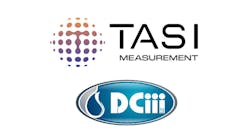NSF International (NSF), an independent public health organization, has become the first Independent Laboratory (IL) accepted by the United States Coast Guard (USCG) to evaluate and test technologies designed to treat ballast water on ships in order to prevent the spread of non-native aquatic species in lakes, rivers and coastal waters.
Ballast water, while essential to the safe and efficient operation of modern shipping, can pose economic, ecological and public health risks when it carries non-native species around the world. The USCG regulations were developed to limit the release of live organisms in ship ballast water to reduce the risks associated with the spread of aquatic invasive species.
NSF is leading a partnership between Retlif Testing Laboratories (Retlif), the Great Ships Initiative (GSI) and the Maritime Environmental Resource Center (MERC) to test and evaluate systems to the Coast Guard requirements.
Ballast water management system manufacturers (BWMS) will apply to NSF International and the USCG for testing, review and evaluations. NSF International will coordinate testing between Retlif, the GSI, and the MERC. NSF coordination will include preparation of test plans, review of test data (technical and quality assurance), evaluation of BWMS material design and construction and the operation, maintenance and safety manual. It also includes submittal of the test and evaluation results to the USCG.
Land-based testing will determine if the BWMS is able to effectively treat ballast water to meet the ballast water discharge standard (BWDS) requirements of 33 CFR Part 151, Subparts C and D. The land-based testing provides a consistent means for evaluating the ability of any BWMS to remove and/or inactivate biological organisms under controlled conditions.
Shipboard tests and evaluations will verify that the BWMS, when installed and operated on a vessel, consistently produces ballast water that meets the BWDS requirements, and that the operating and maintenance parameters identified by the manufacturer in the Operation, Maintenance, and Safety Manual are consistently achieved.
The GSI and MERC will conduct both land-based and shipboard testing.
GSI is part of the Northeast-Midwest Institute (NEMWI), which is a private non-profit corporation located in Washington, D.C. GSI houses a fully fledged land-based test platform and an experienced team of scientists and consultants capable of conducting shipboard and supporting bench testing.
The MERC test facility is a mobile barge-based platform with a home port of Baltimore, but it may also test at multiple locations and water salinities in the Chesapeake Bay, including Norfolk, Va. Facility personnel have several years experience in land-based and shipboard testing. The University of Maryland Center for Environmental Science is a public non-profit corporation, one of 12 institutions within the University System of Maryland.
Retlif will complete testing of the electrical and electronic components, including each alarm, control and monitoring device of the BWMS. Retlif is a 34-year-old independent testing laboratory specializing in electromagnetic interference (EMI) testing, environmental simulation testing and engineering services, to both military and commercial test standards, for national and international clients.
NSF International has provided support to the USCG for more than 30 years as a recognized facility for testing and evaluation of marine sanitation devices and oil pollution prevention equipment. NSF is also the verification partner with the U.S. Environmental Protection Agency’s Water Quality Protection Center (WQPC) of the Environmental Technology Verification (ETV) program, which verifies commercial-ready technologies that protect ground- and surface waters from contamination.
The WQPC, with valuable contributions from a large number of ballast water treatment stakeholders, developed the protocols to be used for this BWMS testing. NSF is a global independent organization with nearly 70 years of public health and safety expertise.

